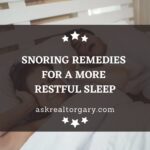If you’ve read here for a while, you know that I’m using a Sleep Management System called Zeo. It uses a formula for calculating a “Sleep Score” every night – they call it a ZQ.
The formula that Zeo uses to calculate ZQ is based on weighing the different components of your sleep, scoring them, and then adding them up. Everyone will be different, but the score you get will be a good benchmark to determine if your individual sleep is improving or digressing.

Contents
The Zeo Sleep Formula
The Zeo formula is here, but in a nutshell, here’s how they weigh each sleep component (all the times are calculated based on the hours and minutes spent in that state). It’s interesting how they have “weighted” each sleep factor:
- Total Sleep Time + 1
- REM Sleep +0.5
- Deep Sleep +1.5
- Time Awake -0.5
- Times Awakened -0.067
Clearly they’ve done lots of research – I would argue that in the development and use of their product, with thousands of users, they have more sleep data than anyone else in the world, and through reading their responses to user questions, they have clearly done their research.
Although their formula is simple, it’s based on studies which tend to tell us what’s important in your sleep.
N1 and N2 light sleep are important, but REM and Deep Sleep are weighted significantly heavier in their formula. Click on the link to read more about the specific sleep stages, and how they’re identified.
What is REM Sleep?
REM Sleep is where you primarily dream. It’s called REM because of the Rapid Eye Movement that goes on while you’re in this phase. REM will “normally” take up between 20-25% of your night, and it becomes more frequent as morning approaches. Often after a period of REM Sleep and dreaming, you’ll briefly awaken (you likely won’t notice this) before you go back into another stage of sleep. Look at my graph above, and notice that my abnormal sleep patterns still have REM followed by awakening except for one brief session where I fell back (fell forward?) into light sleep.
Also Read –
Nobody really understands REM fully at this point, and it’s full of informed speculation. It’s thought that REM is a process where we resolve and refine memory, and appears to be the core of creative thought. Some think that it’s the period where we review events, and then strengthen the ones we want to remember, and suppress all the others. We do know that when infants are denied this stage of sleep they develop abnormally – behavior problems, small brain mass, etc.
The are some drugs – MOA Inhibitors and some antidepressants – that suppress REM sleep. But again, we’re not sure about the consequences of this.
According to the folks at Zeo (and everybody else that studies sleep), REM is the second most important phase of sleep and it’s weighted that way.
What is Deep Sleep?
Deep Sleep is also called Slow Wave Sleep (see this link for a diagram of slow wave sleep). This is the phase of sleep where we are very hard to awaken, and if we do we’re groggy and disoriented (we’ve all experienced this – and this is why). If REM rejuvenates our minds, then it’s Deep Sleep that works on our bodies.
During Deep Sleep, blood is sent away from our brain and towards our muscles and tissues for rejuvenation. It stimulates growth and development and boosts your immune system. This is the time spent repairing your body and getting ready for the next day.
We know that Deep Sleep is important because we experience it (normally) in the first part of the night – it’s as though our bodies know that sleep might be disrupted, so it gets this kind as soon as possible. Note in the graph at the top of this post how deep sleep is “front loaded” in the night, even in a messed up insomniac like me.
We also know that your body will sacrifice any other stage of sleep (Light, REM) to get some Deep Sleep. Lack of Deep Sleep is the most noticeable part of sleep deprivation – lethargy, unfocused, tired….
Benzodiazepines like Ativan and Valium (there are plenty more) are known to supress Deep Sleep. On this night I took 1mg of Ativan to see how it would affect my sleep:
I was actually really shocked – I thought the affect of the drug wouldn’t be as impactful as that … less than half of the normal Deep Sleep I get.
The Importance of REM and Deep Sleep
All of sleep is significant, and it’s important that you schedule enough of it into your day – nominally setting aside about 8.5 hours (this is why the Zeo formula uses a multiplier of 8.5). But while you’re asleep, the two areas that can really gauge how well you feel and perform the next day are:
Sleep hackers are people who play around with their sleep – generally to sleep less, but also to get better quality sleep overall. They use these two measures to tell them how well they’re doing. Typically they’ll target some ratio of REM:Deep (2:1, 1:1, 1.5:1 ?) and get as much of each as they can in the time they allot.
Dave Asprey is a sleep hacker (among several other things) who sleeps less than 5 hours a night, and has targeted a 50/50 split between REM and Deep for optimal performance.
I’d hardly call myself a sleep hacker – I’m more of an insomniac. It’s purely subjective, but I know when I don’t get enough Deep Sleep (for me, that seems to be about an hour), I feel all sore and creaky the next day. When I don’t get enough REM (about twice as much as Deep – 2-3 hours is good), I feel foggy and tired.
Fortunately, we don’t have to think about any of this. If we get enough sleep, and we don’t have some other issue affecting it (like drugs of some kind) our bodies will sort all this out for us – and get just the right amount of REM and Deep Sleep to function just fine the next day…










